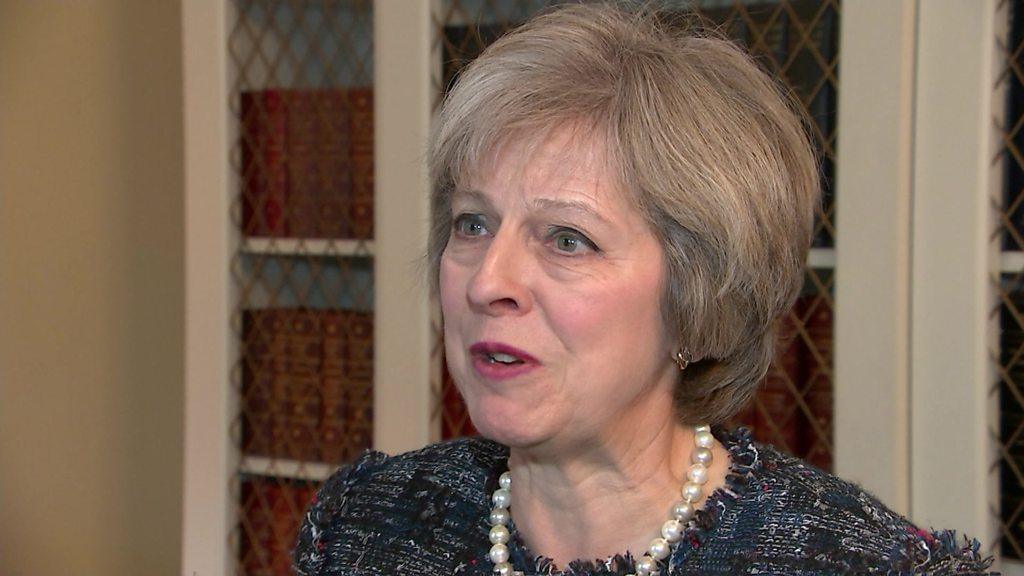Theresa May to visit Donald Trump 'in the spring'
- Published
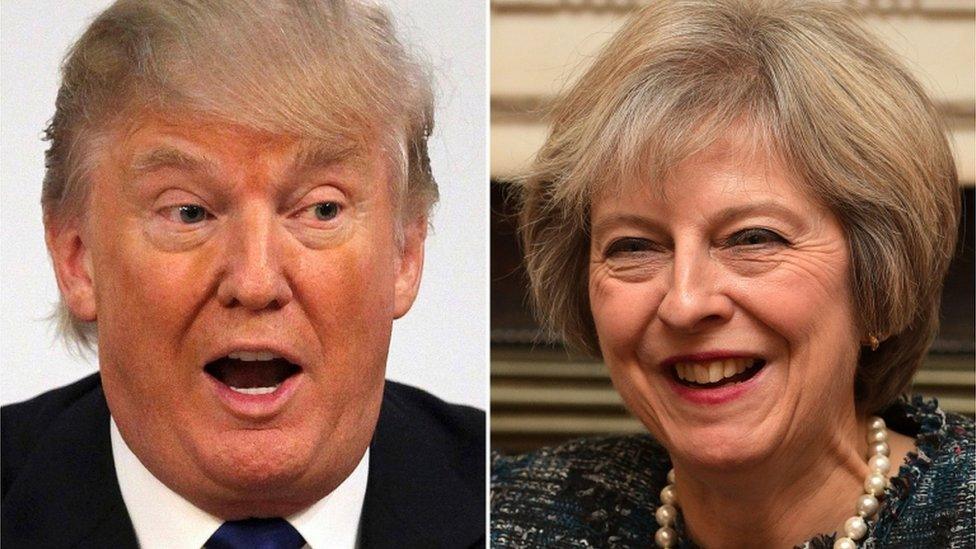
Theresa May is to visit US President-elect Donald Trump in the spring, Downing Street has said.
In December the PM's joint chiefs of staff, Nick Timothy and Fiona Hill, travelled to the US to build links with the incoming president's team.
A source said Mrs May "looks forward to visiting the new president in the spring".
The meeting is expected to take place at the White House and could be as early as next month, it is understood.
The December trip by Mrs May's closest aides was part of efforts to build a relationship with Mr Trump ahead of his inauguration on 20 January.
The president-elect first invited the prime minister to visit in a phone call shortly after his election victory in November.
It had been expected that she would visit Washington in the early months of 2017.
'Almost impossible'
Transport Secretary Chris Grayling told Sky News that there was nothing out of the ordinary about what was happening.
"You would expect a meeting between the new US president and our prime minister relatively soon after he takes office and that is what is happening," he said.
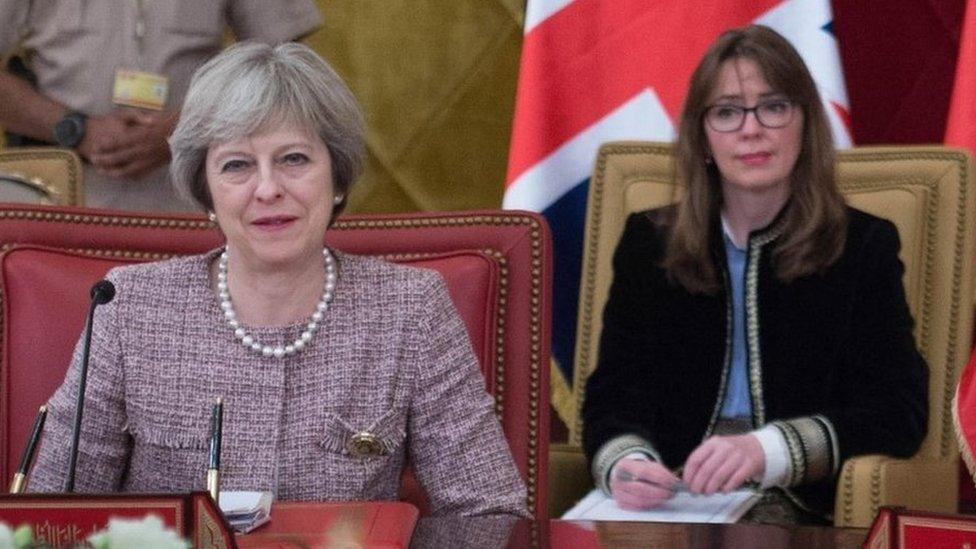
Close aide Fiona Hill is said to have laid the ground for a meeting
Former UKIP leader Nigel Farage was the first British politician to meet Mr Trump after his election victory - meeting him in his Trump Tower residence in New York.
Mr Farage, who appeared with Mr Trump during the election campaign, suggested that Mrs May's advisers had not met key players in the president-elect's team.
"I think it's almost impossible that they could have got into Trump Tower, somebody would have recognised that photograph," he told LBC Radio.
"It sounds to me like they went to Washington, they might have met either the existing State Department or perhaps some of Trump's transition team down there."
Special relationship
Mrs May and other ministers have been critical of Mr Trump in the past, attacking his call in December 2015 for a ban on Muslims entering the US in the wake of the mass shootings in San Bernadino, California.
A year ago, MPs debated calls for Mr Trump to be denied entry to the UK.
But historian Sir Anthony Seldon said he was sceptical of the "conventional wisdom" that Trump's election would put a strain on US-UK relations.
The two leaders, he said, shared a "similar ideological outlook" and a "common enemy" in Islamist terrorism which would provide the basis for close co-operation, while he believed Mrs May's "no-nonsense gravitas" would appeal to the new president.
"The US will need special friends," he said. "Who else but Britain? Israel - hardly. Russia - unlikely. Germany - not under Angela Merkel. Trump is above all transactional. If he can do deals with Britain, he will want more."
Britain's ambassador to the US, Sir Kim Darroch, has suggested that the so-called "special relationship" between the two countries will continue and that Mrs May and Mr Trump will "build on the legacy" of Ronald Reagan and Margaret Thatcher.
Mr Trump has strong business links with the United Kingdom and, during the summer, signalled his support for the UK's decision to leave the EU.
Earlier this year, current US President Barack Obama suggested the UK would be "at the back of the queue" for negotiating a free trade deal with the US in the event of Brexit.
- Published29 November 2016
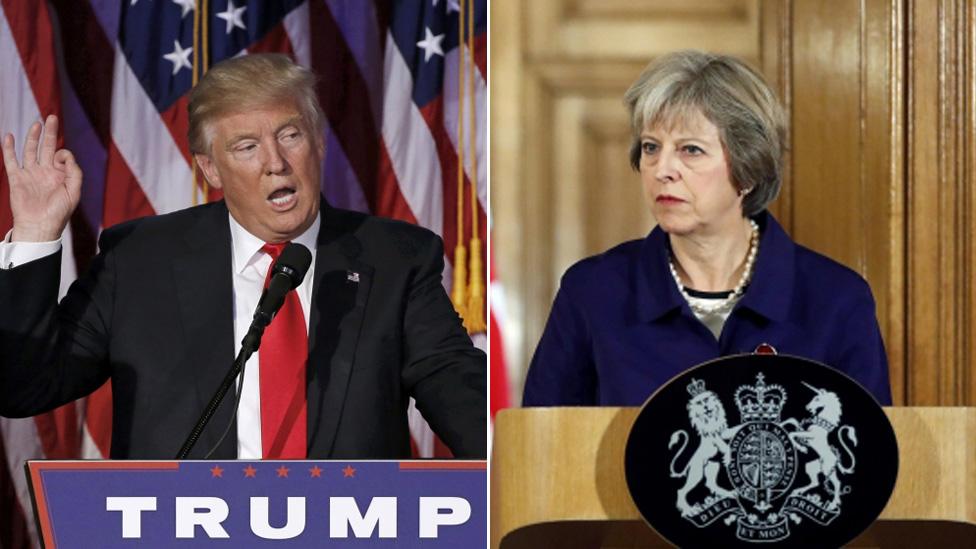
- Published22 November 2016
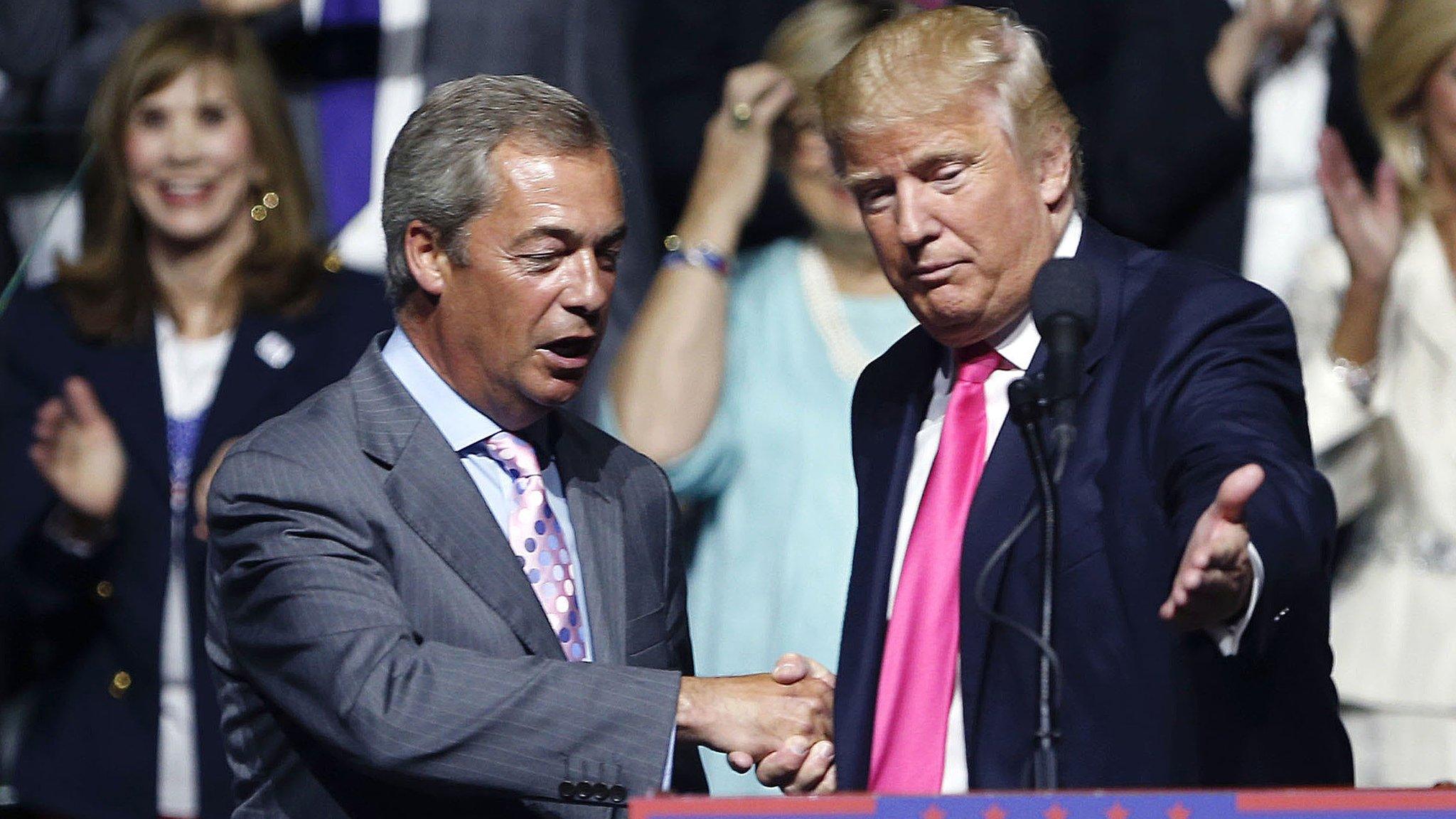
- Published10 November 2016

- Published9 November 2016
